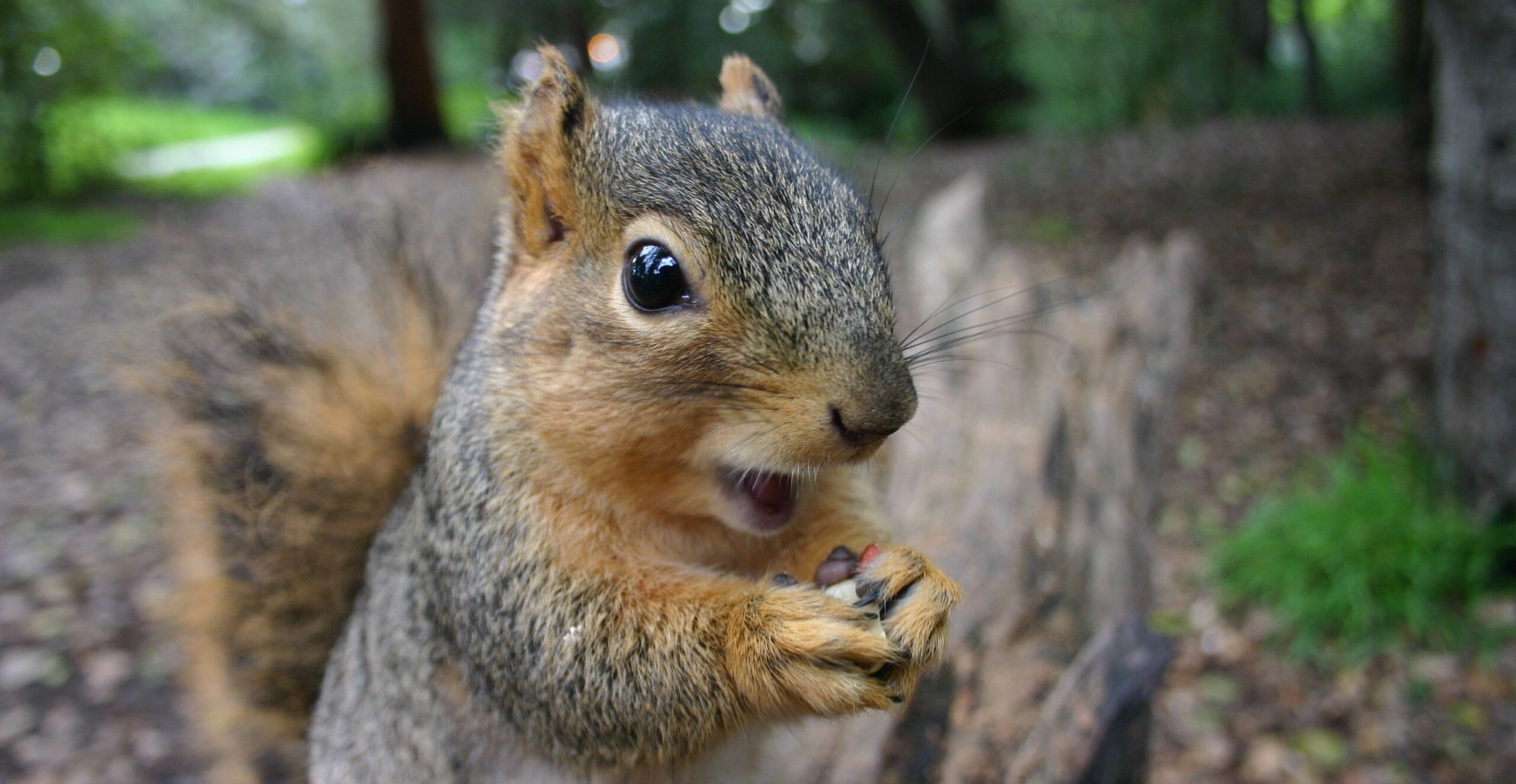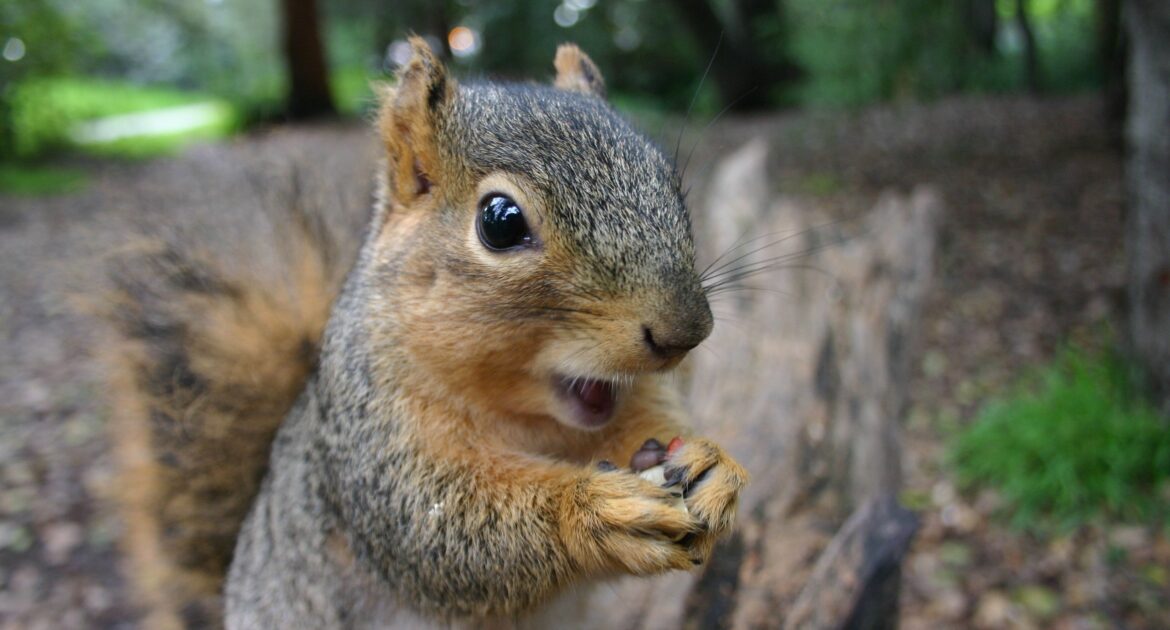If you’ve noticed squirrels busy hiding nuts around your property, you’re not alone. This is a common behavior many homeowners in areas like Marietta witness, especially during certain times of the year. Squirrels hide nuts-just as you would expect-to enjoy later!
Understanding why squirrels engage in this activity, how it impacts your property, and how to manage these furry visitors can help you enjoy your home without worry. Let’s explore why squirrels hide nuts, explain their behavior, and offer actionable tips for managing squirrels on your Atlanta property.
Why Squirrels Hide Nuts
The behavior of hiding nuts, also called “caching,” is deeply connected to a squirrel’s survival instinct. Squirrels hide nuts to prepare for winter when food sources like acorns and seeds become scarce. This activity helps them create a pantry of food supplies they can rely on when times are lean.
- Not all squirrels use the same caching method.
- Many squirrels practice “scatter-hoarding,” burying nuts across different locations to reduce the risk of losing all their food to predators or other squirrels.
- Gray squirrels, commonly found in Atlanta, use memory and spatial awareness to recover their food.
- Scientists have observed squirrels burying and reburying nuts to maintain a fresh “mental” map of their cache locations.
However, squirrels lose about 25% of their stashes to thieves. To counter this, they sometimes create “fake caches” to throw potential thieves off-track. While squirrels’ caching habits might seem like an annoying quirk as they dig up your yard, it’s also a fascinating example of how wildlife adapts to its environment.
Squirrel Behavior Explained
Squirrel behavior varies depending on the time of year. Understanding these patterns can help you anticipate and manage their activity. For example, in Atlanta, squirrels are most active from late summer to fall as they prepare for winter. During this time, they ramp up their food storage efforts, often becoming more visible in yards and near trees.
- Squirrels use their teeth and agility for survival.
- They may chew into attics through weak points in structures to create dens.
- Their continuously growing teeth drive them to gnaw on materials like wood, vinyl, and electrical wiring.
- This behavior can cause significant damage if they enter your home.
Squirrels also give birth twice a year—in early spring and late summer. During these times, they seek sheltered spaces like attics to raise their young. It’s worth noting that squirrels are territorial creatures, so once they pick a “favorite” spot, they may revisit it year after year unless you take preventative actions.
Managing Squirrels on Your Property
While squirrels are a natural part of life in Atlanta, their behavior can create challenges for homeowners. Here are practical steps you can take to manage their presence and protect your property:
- Secure Entry Points: Inspect your home for any gaps, cracks, or holes in the roof, siding, and foundation. Squirrels only need about a two-inch opening to squeeze inside. Use durable materials like steel mesh to seal potential entry points securely.
- Trim Tree Branches: Squirrels often access rooftops through overhanging branches. Trim any branches that extend within six to eight feet of your home to minimize easy access.
- Protect Food Sources: If you have bird feeders, use squirrel-proof designs or place the feeders at least ten feet away from trees or structures that squirrels can climb. Clean up any fallen seeds or nuts to avoid attracting them.
- Use Motion Deterrents: Motion-activated sprinklers or lights can discourage squirrels from spending time in your yard. These tools create a sudden, unexpected response that teaches squirrels to steer clear.
- Guard Your Garden: If squirrels are digging up flower beds or vegetable gardens, consider placing mesh or netting over the soil. A light layer of mulch can also deter digging.
- Install Chimney Caps: Chimneys are another inviting location for squirrels to build nests. Installing a chimney cap with a mesh barrier can prevent them from getting inside.
How Squirrels Impact Your Property
Squirrels’ activities can have both direct and indirect impacts on your property. Some of the common issues homeowners face include:
- Lawn and Garden Damage: Squirrels digging to stash nuts or search for food can disrupt lawns, flower beds, and vegetable gardens. While it may look like harmless digging, over time, this behavior can damage the aesthetics of your property.
- Structural Damage: If squirrels gain access to your home, they can chew through insulation, drywall, and even HVAC ducts. This not only creates a mess but can compromise the structural integrity of your home.
- Electrical Hazards: Squirrels’ constant gnawing can damage wiring, increasing the risk of electrical fires. If you hear unusual noises in your attic, it’s worth investigating to ensure they haven’t made a den.
- Health Risks: Squirrels can carry ticks, fleas, and other parasites that pose health risks to both humans and pets. Their nesting materials and droppings can also harbor bacteria and allergens.
Why Atlanta Residents See More Squirrel Activity
Atlanta’s wooded neighborhoods and mild winters create an ideal environment for squirrels. With ample oak trees and other nut-bearing varieties, there’s no shortage of food to sustain squirrel populations. Landmarks like Piedmont Park and Decatur Cemetery are hotspots for wildlife activity, which often spills into nearby residential areas.
The combination of urban living and natural spaces means squirrels have adapted to coexisting with humans. While that’s great for Atlanta’s ecosystem, it can create some unique pest management challenges for homeowners.
When to Contact Skedaddle for Squirrel Removal Services
Timing is crucial when addressing a squirrel infestation effectively. The best time to contact Skedaddle for squirrel removal services is as soon as you notice signs of their presence in your home or property. Early detection and prompt action can prevent further damage and reduce the complexity of the removal process. Look for telltale signs such as scratching or scampering noises in your walls, ceilings, or attic, as well as visible entry points or chewed wiring and insulation.
- Seek professional help during spring and fall, the peak breeding seasons for squirrels.
- Squirrels are more likely to nest in sheltered spaces like attics during these times, potentially causing structural damage and electrical risks.
- Contact Skedaddle after storms or extreme weather, as high winds and heavy rain can damage roofs or eaves, creating entry points for squirrels.
- Addressing these vulnerabilities quickly prevents wildlife from becoming a problem.
Skedaddle’s humane and comprehensive approach to squirrel removal ensures that the issue is resolved thoroughly, while minimizing stress for both you and the animals. Experts at Skedaddle will handle the removal process efficiently, seal entry points, and offer insights on how to prevent future infestations. Don’t wait until the problem escalates — the sooner you reach out, the better the outcome.
Take Charge of Your Yard
Seeing squirrels hide nuts around your property can spark a mix of curiosity and concern. While their behavior is a marvel of nature, it also serves as a reminder of the importance of proactive home management.
We hope this guide has helped you understand why squirrels behave the way they do and offered useful tips to manage their activity around your home. If you’re struggling with damage or persistent squirrel activity, Skedaddle Wildlife Control in Marietta is here to help. Our team specializes in humane wildlife control, keeping your property safe without harming the animals.
For expert guidance on managing squirrels around your Atlanta home, contact Skedaddle today. Together, we can keep your property safe while respecting the wildlife that calls Georgia home.




